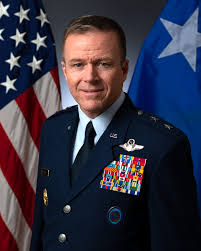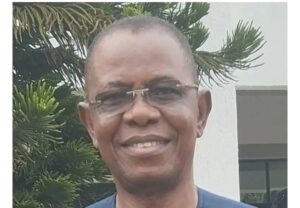
US SAYS WITHDRAWAL OF ITS FORCES IN NIGER HAS CREATED A SECURITY VACUUM IN W/A
This page is supported by Shell Nigeria. Click here for more information
The United States has warned that the recent withdrawal of its forces from Niger has created a security vacuum in West Africa, a region already plagued by escalating extremist violence.
Major General Kenneth Ekman, the Department of Defense West Africa Coordination Element Lead at US Africa Command, expressed concern at a press briefing in Abuja on Friday, stressing that regional security is rapidly deteriorating.
In March 2024, Niger announced it was revoking its military cooperation deal with the US, ordering 1,000 American armed forces personnel to leave the country, which has thrown the United States’ strategy in the region into disarray.
The announcement by the West African nation’s military junta followed a visit from Washington and the top US commander for Africa, Gen. Michael E. Langley.
Ekman acknowledged that while the logistical aspect of the withdrawal had been successful, the strategic implications were dire.
He said he has been in Niamey “since April to coordinate the complete withdrawal of US forces from Niger. We are almost done. We have achieved, together with our Nigerien partners, the safe, orderly, and responsible withdrawal of US forces.
“The good news is that the withdrawal went well. The bad news is that regional security is not.”
He expressed deep concerns that the absence of US forces in Niger has exacerbated the vulnerability of the region, making it a more fertile ground for terrorist activities.
This comes at a time when the Sahel is witnessing a surge in attacks by militant groups linked to ISIS and al-Qaeda, raising alarms among security experts and local governments alike.
“Concurrent with the coordination of the withdrawal, we have been working with regional military partners on how to address the growing violent extremist organisation security problem that emerges from the Sahel.
“While our objectives have not changed, they have become harder to achieve.
“The key concern is what happens to regional security with the departure of US forces from Niger and what spills over across the northern border as a result,” he stated.
Despite the bleak outlook, Ekman affirmed that AFRICOM remains committed to the region.
AFRICOM’s approach, as outlined by Ekman, relies heavily on partner-led, US-enabled operations.
He pointed to ongoing collaborative efforts, such as the Multinational Joint Task Force in the Lake Chad Basin, as critical to combating the spread of terrorism.
The decision to withdraw from Niger has forced AFRICOM to reposition its forces in neighbouring countries, including Côte d’Ivoire and Benin.
Ekman described this strategy as an “outside-in” approach, designed to address security threats from a more peripheral stance.
“As we moved US forces out of Niger, some of them are already being redistributed to the areas around Niger. We are now focused on an outside-in approach. Countries where we are having conversations include Côte d’Ivoire and Benin, and we have some U.S. forces there now. I am going to Accra next,” he said.





